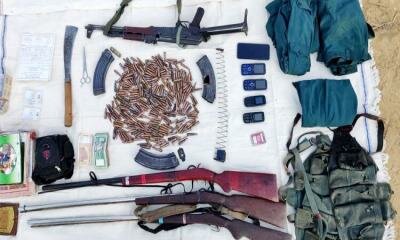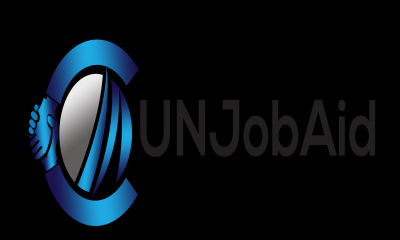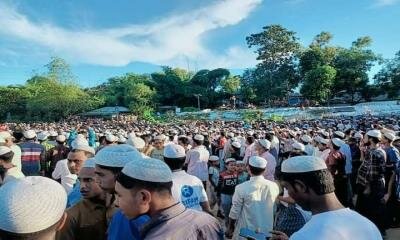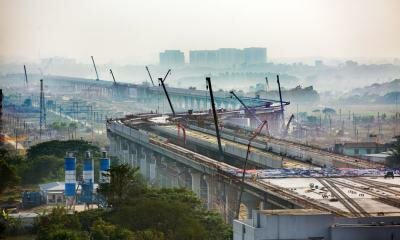Infrastructure equipment market booming on mega projects
Cox Gazette | Online Desk April 10, 2020, 11:22 PM

Bangladesh's infrastructure equipment manufacturing sector is undergoing sweeping changes to meet the increased demand brought on by the implementation of the government's mega projects to accelerate economic growth.
The demand for highly advanced infrastructure equipment started its ascent when the government began construction of world-class development projects such as the Padma bridge, Rooppur nuclear power plant, Matarbari power plants, Karnaphuli Tunnel and Dhaka Metro Rail.
With the impetus, the country's infrastructure equipment market has grown steadily for the last three to four years.
In 2019, the market size for infrastructure equipment was about Tk 1,500 crore. In 2001, it was less than Tk 100 crore, according to market players. In the last two years alone, the demand for heavy-duty equipment increased almost 200 per cent.
"The amount of infrastructure and construction equipment that entered the country in the last two years is equivalent to the total import of such machinery for the last 20 years," said Hafizur Rahman, managing director of the Bangladesh Equipment Corporation (BEC).
The BEC is a retailer of infrastructure and material handling equipment such as excavators, bulldozers, forklifts, backhoe loaders, soil compactors and cranes.
In the last four or five years, the demand for such equipment rose in Bangladesh due to the ongoing development efforts undertaken by the government.
Rahman expects the rising trend in the demand for heavy construction equipment to continue for the next 10 years as the number of infrastructure development projects in Bangladesh will increase as well.
The government has about $30 billion worth of development projects under construction across the country in a bid to mitigate Bangladesh's infrastructure issues and attract foreign direct investment to accelerate the country's economic growth.
Other than that, the construction sector grew 16.25 per cent year-on-year to Tk 73,594 crore in fiscal 2016-17 and the real estate sector 15.14 per cent to Tk 61,935 crore, according to the Bangladesh Bureau of Statistics.
There are over 10 importers of heavy duty construction and infrastructure equipment including ACI Motors, Nitol Niloy Group and HNS Group.
As much as 60 per cent of the equipment available in Bangladesh is reconditioned and are either Japanese or German products, said M Samsuzzaman, general manager of ACI Motors, which entered the market in 2014 and represents one of the world's top producers of full line construction equipment, Case Construction Equipment.
"However, the use of Chinese equipment has risen since 2008," he said, adding that reconditioned infrastructure and construction equipment from Japan and Dubai are doing well too.
There are mainly four types of infrastructure equipment used in Bangladesh: earth-moving, road construction, metal handling, and bridge construction.
Most heavy duty construction and infrastructure equipment now comes from China as Bangladeshi contractors prefer Chinese products since it is comparatively cheaper than that of Japan or Germany, said Abdul Matlub Ahmed, chairman of Nitol-Niloy Group, an Indian manufacturer of heavy duty trucks, bulldozers, cement mixers, etc.
However, the market size for infrastructure equipment is yet to see any significant increase as contractors rent the necessary tools from Singapore while foreign contractors bring their own.
Chinese construction machinery and equipment manufacturers control 60 per cent of the market because of their competitive pricing.
The remaining 40 per cent is imported from Korea and Japan, Ahmed added.
However, the current demand for equipment is still low compared with that of other developing countries, according to Mohammed Shahidul Islam, chairman of HNS Group.
HNS, a distributor of South Korean automotive giant Hyundai, imports heavy infrastructure and construction equipment, including excavator, skid loader and such, from Korea.
More News from Mega Project
-

Internet access will no longer be blocked in Ukraine says Elon Musk
-

No possibility of US sanctions expansion: Shahriar
-

UNHCR and IOM Condemn Deadly Attack on Displacement Site in DR Congo
-

Teleworking during COVID: Risks, benefits and steps to a ‘new normal’
-

Army officer among 4 dead in Bandarban gunfight
-

Health tech startup Best Aid raises investment from YY ventures.
-

DiCaprio praises Bangladesh on new marine protected area around St Martin`s
-

Guterres calls for end to conflict in Ethiopia after deadly attacks
-

Rohingya refugee camps hit by second fire in 10 days ,Leaving thousands homeless
-

BNCA begins a shadow investigation into elephant killing in Cox’s Bazar
-

One more elephant found dead in Cox`s Bazar, death toll 7 in 11 days
-

Shahriar Nisan joins BDMORNING as Acting Editor
-

Two more Rohingya men arrested over Mohib Ullah killing
-

One arrested over Rohingya leader Muhib Ullah killing.
-

Hundred Plus UN Job Openings in a glance
-

Youth empowerment for tourism’s future ,The eight winning solutions
-

UN Refugee agency condemns killing of Rohingya refugee leader
-

Thousands of `Rohingya Refugees` pay their last respects to Mohib Ullah
-

Rohingya Leader Mohibullah Killed in Cox`s Bazar camp
-

Internet connection cuts off in more than ` 25 `townships in northwestern Myanmar







Write Your Opinion :